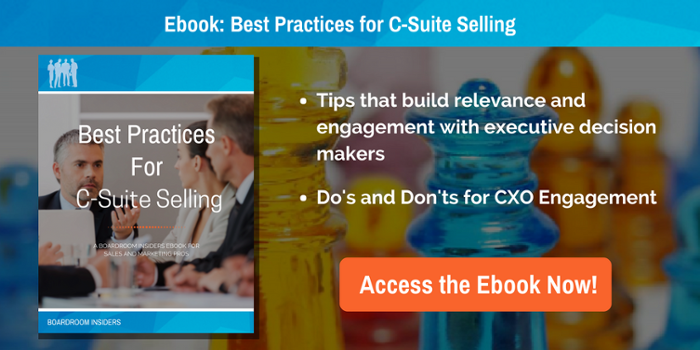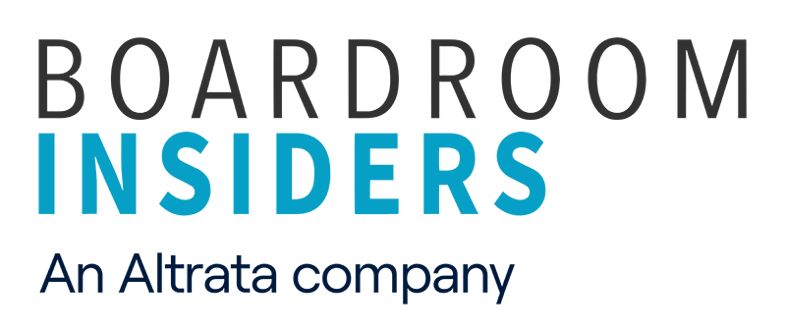
Recently I came across an article called "Back To The Future In Enterprise SaaS Selling.” The authors make the argument that as SaaS companies mature, it is important that they acquire more "old school skills" to continue to grow. Specifically, they are talking about the skills to sell larger, enterprise deals.The article caught my eye because many of our customers are SaaS companies working to make the transition to enterprise selling. The authors’ description of the dilemma that ensues—and the change of strategy and skills required to successfully make this transition—aligns with what we so often hear from our SaaS customers:
"As deal sizes increase, a business user that previously may have swiped her credit card to purchase software gives way to centralized IT needing to vet budget availability and security standards before making a purchase. Having more sophisticated sales personnel in place who understand how to navigate the complexities of a large enterprise with multiple buying centers and constituencies goes hand-in-hand with substantially higher compensation.
These more expensive sales folks should be expected to engage in solution selling – meaning they have a deep understanding of each customer’s business and his or her individual pain points. So, here again, larger deal sizes with larger quotas are needed to offset the expense of more experienced personnel.
In addition, hiring a combination of a seasoned, enterprise-oriented VP of sales, initial layers of sales management and of course more traditional outside or field reps shouldn’t be signals of growing up and getting old, but rather getting smart. This kind of sales organization can ensure a company’s readiness when the next phase of growth is needed and the switch to selling enterprise-wide licenses to C-level executives becomes the lifeblood of a SaaS business.
Finally, the CEO’s role must change from being more product-focused, and letting inside sales provide periodic updates, to spending a significant portion of time on the road with large enterprise customers."
Marc Benioff of Salesforce is the best example of a CEO who has led the enterprise sales charge, and the company is seeing record sales performance as a result.
Making the transition to enterprise selling is hard. While we are not a SaaS company, we sell to enterprises and know first hand about all of the challenges. Multiple decision makers. Promising conversations followed by months of radio silence. Budget challenges and tin cupping. Custom requirements that eat up your resources. Procurement red tape. All of this adds up to sales cycles of 6 to 18 months, on average.
Because of these complications, it might be tempting for SaaS companies to stick to their “bottoms up” model, content to sell smaller deals to individual departments within the enterprise with the hopes of being able to go broader later. While this might work for some, the authors, who are venture capitalists, talk about the pitfalls of this model for venture-backed companies, where the expectation is to rapidly accelerate growth. They say:
"While this 'bottoms-up' model is ideal for early rapid growth, SaaS businesses that focus their cultures and organizations solely on this model will eventually face significant challenges when trying to scale beyond initial adopters to build and grow from a larger base of revenue. And having a large enterprise customer base is also attractive and valuable to a potential acquirer down the line...Therefore, it’s critical that when building sales, marketing and support organizations, practitioners be mindful to also embrace a strategy that allows them to eventually and seamlessly incorporate some 'old school' enterprise skills in order to maintain growth and sell larger ACVs to larger organizations with more onerous requirements.”
So what, exactly, are these “old school enterprise skills” of which the authors speak?
1. Having Business Acumen
Most salespeople default to talking about product features and benefits. Enterprise buyers are more interested in learning about how your offering can move their business forward. Do you know—and can you articulate--how your offering will help your customer achieve their business objectives? Do you even know what their business objectives are? What are their biggest challenges? You should know the answers to these basic questions before you go into a customer meeting.
2. Navigating an Organization and Developing Lasting Relationships with Multiple Stakeholders
One of the challenges of enterprise sales is that multiple decision makers are involved, often all the way up to the CXO level. Do you know all the key players and what they care about? What are you doing to reach and engage them? Are you playing the long game or just looking for a quick product sale?
3. Knowing When and How to Engage Your Own Executive Team
The authors say that " in addition to being a company’s best salesperson, the CEO should also be at the forefront of account management, splitting his or her time between wining and dining prospects and existing customers while on the road.” But the reality is, a CEO has limited time and can only be brought in on so many opportunities. Bring them in too soon and you risk wasting their time. Do you know when the time is right?
Selling to the C-Suite requires a different approach from selling to smaller firms and those lower on the executive ladder. You have to know exactly what they need and tie it to your solution immediately or you'll never gain an audience.
Download your free ebook: Best Practices for C-Suite Selling to learn how to craft your C-Suite selling strategy.








Share Your Thoughts